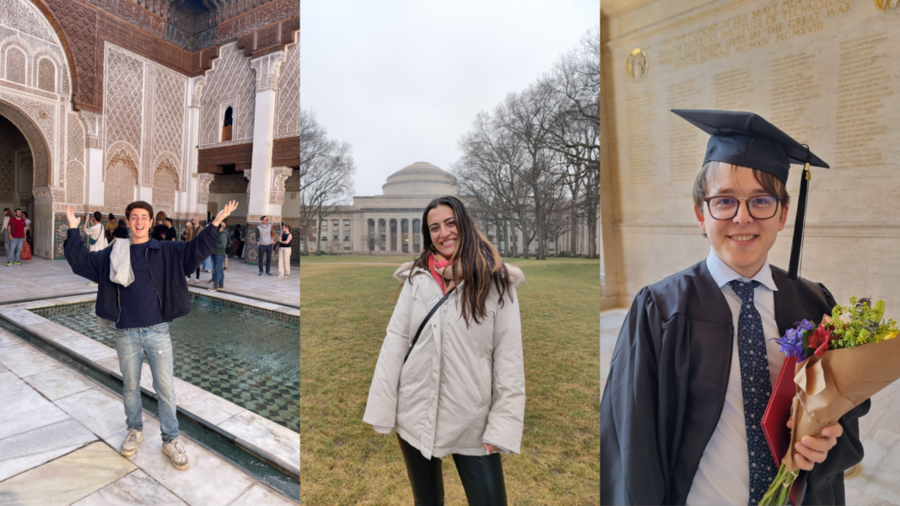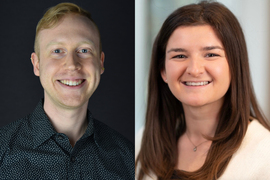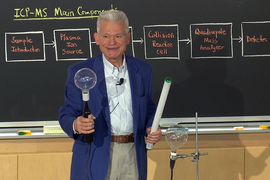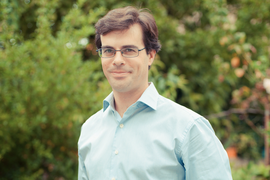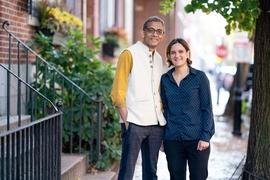A trip to Ghana changed Sofia Martinez Galvez’s life. In 2021, she volunteered at a nonprofit that provides technology and digital literacy training to people in the West African country. As she was setting up computers and connecting cables, Martinez SM ʼ23 witnessed extreme poverty. The experience was transformative. That same year, she left her job in quantum cryptography in Spain and enrolled in the MITx MicroMasters online program in Data, Economics, and Design of Policy (DEDP), which teaches learners how to use data-driven tools to help end global poverty.
By 2023, Martinez completed the MIT DEDP master’s program. Today, she is the co-founder of Learning Alliance, a new nonprofit that will counter sub-Saharan Africa’s learning crisis by introducing evidence-based teaching practices to teachers. She plans to move to Africa this summer.
“If someone told me a few years ago, when I was doing research in quantum physics, that I would be starting my own organization at the intersection of education and poverty, I would have said they were crazy,” Martinez says. “From my first MicroMasters course, I knew I made the right choice. The instructors used mathematics, models, and data to understand society.”
Since 2017, the MicroMasters in DEDP program — jointly led by the Abdul Latif Jameel Poverty Action Lab (J-PAL) and MIT Open Learning — has been bringing together former nurses, lawyers, software developers, and others who are ready to make a career change and an impact on the world.
A new way to combat poverty
The MicroMasters in DEDP curricula is based on the Nobel Prize-winning work of MIT faculty members Esther Duflo, the Abdul Latif Jameel Professor of Poverty Alleviation and Development Economics, and Abhijit Banerjee, the Ford Foundation International Professor of Economics.
The pair used a key feature of laboratory science — randomized control trials — and applied it to development economics. For example, to test the efficacy of a new education initiative, researchers could randomly assign individuals to either participate in the program, known as the treatment group, or not, known as the control group. The difference in outcomes can be attributed to the new program.
This approach has fundamentally changed how antipoverty programs are designed and evaluated around the world. It has already boosted immunization rates in India, reduced child marriages in Bangladesh, and increased school attendance in Kenya.
Duflo and Banerjee’s research created a new way forward for poverty alleviation, but there are too few people skilled in evidence-based development economics to bring about meaningful change, says Sara Fisher Ellison, faculty director of the MicroMasters and master’s programs in DEDP and a senior lecturer in the MIT Department of Economics.
“It is vitally important that we have people all over the world who have the skills to run randomized control trials, to read the literature from these trials, and interpret the results to policymakers,” Ellison says.
Andrea Salem was an economics undergraduate student in Switzerland who was unsure about his career when Duflo and Banerjee received their Nobel Prize. Their recognition introduced Salem to a field he barely knew existed, and set him on a path toward using economics to make an impact in the world.
He completed the MicroMasters in DEDP credential and included it in his application for the Paris School of Economics (PSE). Currently taking a gap year from PSE, Salem has an internship with J-PAL’s Morocco Employment Lab. In this role, he works with government officials to evaluate education reforms.
“To get to know the world in all its diversity is a gift,” Salem says. “To live and do research in the same country is a reminder of the important work I’m doing and how much more needs to be done.”
How the DEDP program works
The MicroMasters in DEDP program is open to anyone with a reliable internet connection. Students choose either a track in public policy, which focuses on key issues in high-income countries, or international development, which examines problems prevalent in low- and middle-income countries. They take a rigorous course load in economics, probability and statistics, and data analysis. The program balances flexibility with structure. Students go at their preferred pace in earning the credential, but each course is instructor-led, providing participants with a community of global learners who can regularly participate in webinars and discussion forums.
Students who complete and pass proctored exams in five courses earn a credential. The MicroMasters in DEDP program has awarded more than 10,000 certificates for passed courses and 1,000 DEDP MicroMasters credentials. Credential holders may continue their education by applying to a master’s program at MIT or at one of 19 pathway universities worldwide that either recognize the MicroMasters in DEDP credential in admissions or offer academic credit for the credential as part of an accelerated graduate program. The credential itself is also valuable for professionals as they advance their careers.
The courses are free to audit; there is a fee for each proctored exam. Exam fees are on a sliding scale, ranging from $250 to $1,000, based on a learner’s income and location. DEDP also offers a lottery, available to people who earn less than $10,000 a year, that discounts the price of one course to $100. Martinez was a beneficiary of the lottery in 2021. Without it, she says it would have taken her longer to earn her credential and apply to the master’s program.
Choosing passion and pedigree
Yann Bourgeois SM ʼ22 had a rewarding nursing career working in operating rooms and intensive care units in Belgium. This job gave Bourgeois a firsthand understanding of what happens when human health and needs are neglected. Driven to make a global impact, Bourgeois discovered the master’s in DEDP program while studying public health.
Having overcome personal challenges and socioeconomic adversity, Bourgeois was not sure MIT would consider him for graduate school. When he learned that the MicroMasters credential played an important role in admissions, Bourgeois became hopeful. He enrolled in five MicroMasters in DEDP classes at the same time. It was a bold move for someone who had not taken a math class beyond statistics, but he was eager to submit his graduate school application. By 2022, Bourgeois was an MIT graduate.
“My background doesn't matter,” Bourgeois says. “The fact that I didn’t know what I wanted to do with my life at 14 or 15 doesn’t matter. All that matters is the skills and passion.”
Bourgeois now works as a labor economist at the World Bank in Washington. His job focuses on improving labor conditions and promoting equitable economic opportunities. His MIT education equipped Bourgeois with rigorous analytical tools to address complex economic problems on an international scale.
Like Bourgeois, Martinez did not believe she had the qualifications to apply for the master’s in DEDP program. Then, she read students’ profiles online and learned about their wide-ranging experiences. After learning more about the program’s inverted admissions process, which prioritizes performance in relevant courses over traditional credentials, she realized that the opportunity might not be out of reach.
“Evidence-based development needs people from very diverse backgrounds,” Martinez says. “And I’m proof that you don’t need the ‘right’ background to work in development economics. The fight against global poverty needs everyone.”
